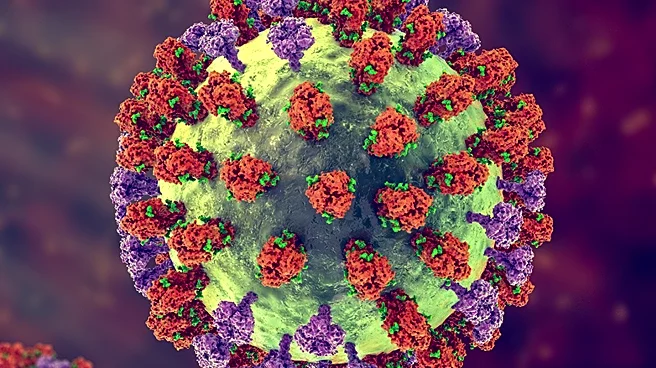What's Happening?
The global vaccines market is anticipated to grow significantly, reaching USD 124.88 billion by 2032, according to Coherent Market Insights. This growth is driven by increasing immunization initiatives from governments and private organizations to combat diseases such as influenza and measles. The market is expected to expand at a compound annual growth rate (CAGR) of 6.2% from 2025 to 2032. The demand for vaccines is rising due to the prevalence of infectious diseases like influenza, meningitis, and hepatitis. Recent outbreaks, such as yellow fever in Colombia and Ebola in Uganda, highlight the urgent need for vaccines. The U.S. FDA has approved new vaccines, including Pfizer and BioNTech's COMIRNATY for COVID-19, to address these health challenges.
Why It's Important?
The expansion of the vaccines market is crucial for public health, as it addresses the growing threat of infectious diseases. The increased demand for vaccines can lead to better disease prevention and control, potentially saving millions of lives annually. This growth also presents significant opportunities for pharmaceutical companies, encouraging innovation and competition in vaccine development. However, challenges such as high R&D costs and inadequate storage facilities may hinder market growth. The focus on preventive healthcare and advancements in vaccine technologies, such as mRNA vaccines, are expected to drive further market expansion.
What's Next?
Governments and international organizations are likely to continue expanding immunization programs to prevent disease outbreaks. Regulatory support for new vaccines is expected to increase, facilitating market growth. The development of novel vaccines targeting rare diseases and the expansion of mRNA technology to other therapeutic areas are anticipated to shape the future of the vaccines market. Companies are expected to invest more in R&D to enhance their product pipelines and competitive positioning.
Beyond the Headlines
The ethical implications of vaccine distribution and access remain a concern, particularly in low-income regions. Ensuring equitable access to vaccines is essential to achieving global health goals. The role of international collaborations and funding in supporting vaccine development and distribution is likely to become increasingly important.










